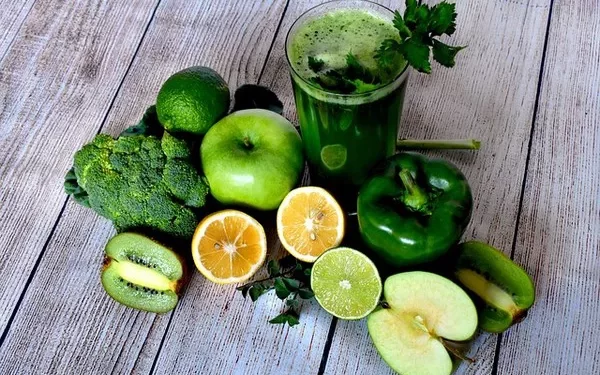Diabetes is a chronic condition characterized by elevated blood glucose levels, resulting from either insufficient insulin production or the body’s inability to effectively use insulin. Managing diabetes involves not only proper medication and exercise but also a carefully planned diet. For individuals with diabetes, food choices become even more critical, particularly when it comes to fruit consumption, as fruits are a natural source of sugar.
However, many fruits contain essential vitamins, minerals, and fiber, which are beneficial to overall health. Understanding which fruits are suitable for diabetics and how to consume them in a balanced manner can significantly help in managing blood glucose levels.
In this article, we will explore the types of fruits that diabetics can safely enjoy, their benefits, and how they fit into a diabetes-friendly diet plan. We will also cover key considerations for including fruits in a diabetic’s daily meals, ensuring a well-rounded approach to managing the condition while promoting overall health.
The Role of Fruit in a Diabetic Diet
Fruits are an excellent source of essential nutrients such as vitamins, antioxidants, and fiber. For individuals with diabetes, the challenge is selecting fruits that provide these health benefits without causing significant spikes in blood sugar levels.
The glycemic index (GI) is a critical factor in determining how a particular food affects blood glucose. The GI measures how quickly a food raises blood sugar levels compared to pure glucose. Foods are classified as low, moderate, or high GI, with low-GI foods being preferable for individuals with diabetes because they cause a slower and more gradual increase in blood sugar.
When considering fruits for a diabetic diet, it is essential to focus on those with a low to moderate GI, as they help maintain more stable blood glucose levels. Moreover, the fiber content in certain fruits helps slow down the absorption of sugar into the bloodstream, reducing the likelihood of sudden spikes in blood glucose.
The Best Fruits for Diabetics
Not all fruits are created equal when it comes to managing diabetes. Below, we will list some of the healthiest fruits for diabetics, categorizing them based on their glycemic index, nutrient profile, and overall health benefits.
1. Berries: A Powerhouse of Antioxidants and Fiber
-
Blueberries
-
Strawberries
-
Blackberries
-
Raspberries
Berries are considered one of the best fruit choices for diabetics due to their low glycemic index, high fiber content, and rich supply of antioxidants. Blueberries, for example, have a GI of 53, while strawberries and raspberries have even lower values.
These fruits are packed with vitamin C, vitamin K, and various phytochemicals, including anthocyanins, which may help reduce inflammation and improve insulin sensitivity. Berries are also relatively low in carbohydrates, making them an excellent option for those looking to manage their blood sugar levels while enjoying a sweet, satisfying snack.
Health Benefits of Berries:
Antioxidants: Berries are loaded with antioxidants that protect the body against oxidative stress, which can contribute to complications associated with diabetes, such as cardiovascular disease.
Fiber: The high fiber content in berries helps slow the digestion of sugar, improving blood glucose control.
Low-Calorie: Berries are naturally low in calories, making them suitable for weight management, an important aspect of diabetes management.
2. Apples: A Low-Glycemic, Fiber-Rich Fruit
Apples, with a GI of 38, are an excellent fruit choice for diabetics. They are high in fiber, particularly in the form of pectin, which has been shown to help lower blood glucose levels. Apples are also a good source of vitamin C, potassium, and antioxidants, which contribute to heart health—a major concern for individuals with diabetes.
Health Benefits of Apples:
Fiber-Rich: The fiber in apples helps regulate blood sugar levels by slowing down the absorption of glucose.
Cardiovascular Health: Apples contain flavonoids that help reduce the risk of heart disease, a common complication of diabetes.
Hydrating: Apples have a high water content, helping with hydration, which is crucial for overall health.
When consuming apples, it is important to eat them with the skin on, as this is where much of the fiber and antioxidants are concentrated.
3. Pears: Nutrient-Dense and Blood Sugar-Friendly
Pears have a GI of 38, making them another excellent fruit option for individuals with diabetes. Pears are rich in soluble fiber, particularly pectin, which helps regulate blood sugar levels. They are also a good source of vitamin C, potassium, and antioxidants, promoting overall health.
Health Benefits of Pears:
Fiber: Like apples, pears are high in fiber, which helps slow the absorption of sugar into the bloodstream, reducing the risk of blood sugar spikes.
Digestive Health: The fiber in pears also promotes digestive health by supporting healthy bowel movements.
Hydration: Pears are high in water, which helps with hydration and supports overall metabolic processes.
Pears are delicious and versatile, making them easy to incorporate into salads, smoothies, or eaten as a standalone snack.
4. Cherries: A Low-Glycemic Fruit Packed with Antioxidants
Cherries have a glycemic index of 20, making them one of the lowest GI fruits available. They are high in antioxidants, particularly anthocyanins, which have been shown to improve insulin sensitivity and reduce inflammation, a key factor in managing diabetes.
Health Benefits of Cherries:
Antioxidants: Cherries are rich in antioxidants, including anthocyanins, which may help prevent complications such as cardiovascular disease and kidney problems.
Anti-Inflammatory: The antioxidants in cherries also have anti-inflammatory effects, which can help reduce the risk of chronic conditions associated with diabetes.
Low Calorie: Cherries are naturally low in calories, making them a great addition to a diabetes-friendly diet.
Cherries can be enjoyed fresh, frozen, or dried, and their sweet flavor makes them a favorite among those with a sweet tooth.
5. Grapefruit: A Citrus Fruit with Diabetes-Friendly Properties
Grapefruit is a low-GI fruit with a glycemic index of 25, making it ideal for people with diabetes. It is an excellent source of vitamin C, fiber, and antioxidants, particularly flavonoids, which may help improve insulin sensitivity and reduce inflammation.
Health Benefits of Grapefruit:
Improves Insulin Sensitivity: Studies suggest that grapefruit can help improve insulin sensitivity, a critical aspect of diabetes management.
High in Vitamin C: Grapefruit is an excellent source of vitamin C, which supports immune function and skin health.
Low-Calorie and Hydrating: Grapefruit is low in calories and high in water, making it a great hydrating option for those managing their weight and blood sugar levels.
Grapefruit can be eaten on its own, added to salads, or juiced. However, individuals taking medications like statins should consult their doctor before consuming grapefruit, as it can interact with certain medications.
6. Peaches: A Sweet and Low-Glycemic Fruit
Peaches have a GI of 42, making them a good choice for diabetics. They are rich in vitamins A and C, potassium, and antioxidants, all of which contribute to overall health and well-being.
Health Benefits of Peaches:
Rich in Vitamins: Peaches are an excellent source of vitamin A, which is essential for maintaining healthy vision, and vitamin C, which supports immune function.
Fiber: The fiber in peaches helps regulate blood sugar levels by slowing glucose absorption.
Hydration: Peaches are high in water content, making them a hydrating fruit that can help with fluid balance.
Peaches are delicious on their own, added to yogurt or smoothies, or even grilled for a unique twist.
7. Kiwi: A Nutrient-Packed Fruit with Blood Sugar Benefits
Kiwi, with a GI of 52, is a great fruit option for diabetics. It is packed with vitamin C, potassium, fiber, and antioxidants, making it not only beneficial for blood glucose control but also for overall health.
Health Benefits of Kiwi:
Vitamin C: Kiwi is one of the richest sources of vitamin C, which is important for immune health and skin repair.
Antioxidants: The antioxidants in kiwi help reduce inflammation and oxidative stress, which are common in individuals with diabetes.
Digestive Health: Kiwi is a good source of fiber, which aids in digestion and helps regulate blood sugar levels.
Kiwis are easy to incorporate into a variety of dishes, from fruit salads to smoothies or eaten alone.
Key Considerations for Eating Fruit with Diabetes
While fruits can provide many health benefits, portion control is essential to avoid excess sugar intake, especially for individuals with diabetes. Here are some important considerations when including fruit in your diet:
Portion Control: Even healthy fruits contain natural sugars, so it is important to practice portion control. A standard serving of fruit is typically around half a cup of fresh fruit or one medium-sized piece of fruit.
Pairing with Protein or Healthy Fats: Combining fruits with a source of protein or healthy fats, such as nuts or Greek yogurt, can help stabilize blood sugar levels and improve satiety.
Choosing Whole Fruits Over Juices: Whole fruits contain fiber, which helps slow the absorption of sugar into the bloodstream. Fruit juices, on the other hand, can cause rapid spikes in blood glucose levels due to their high sugar content and lack of fiber.
Monitoring Blood Sugar: Regular blood glucose monitoring is essential to understand how different fruits affect your blood sugar levels. This will help you make informed choices about when and how much fruit to consume.
Conclusion
Fruits can be a nutritious and delicious part of a diabetes-friendly diet when chosen carefully. By focusing on low to moderate glycemic fruits, such as berries, apples, pears, and citrus fruits, individuals with diabetes can enjoy a variety of flavorful options while maintaining healthy blood glucose levels. Additionally, portion control, pairing fruits with other foods, and monitoring blood sugar levels are key strategies for incorporating fruits into a balanced diabetes diet.
As always, it is important for individuals with diabetes to consult with a healthcare provider or nutritionist to create a personalized dietary plan that best supports their health goals and lifestyle.
Related topics:
What Are the Worst Foods for Prediabetes?



























